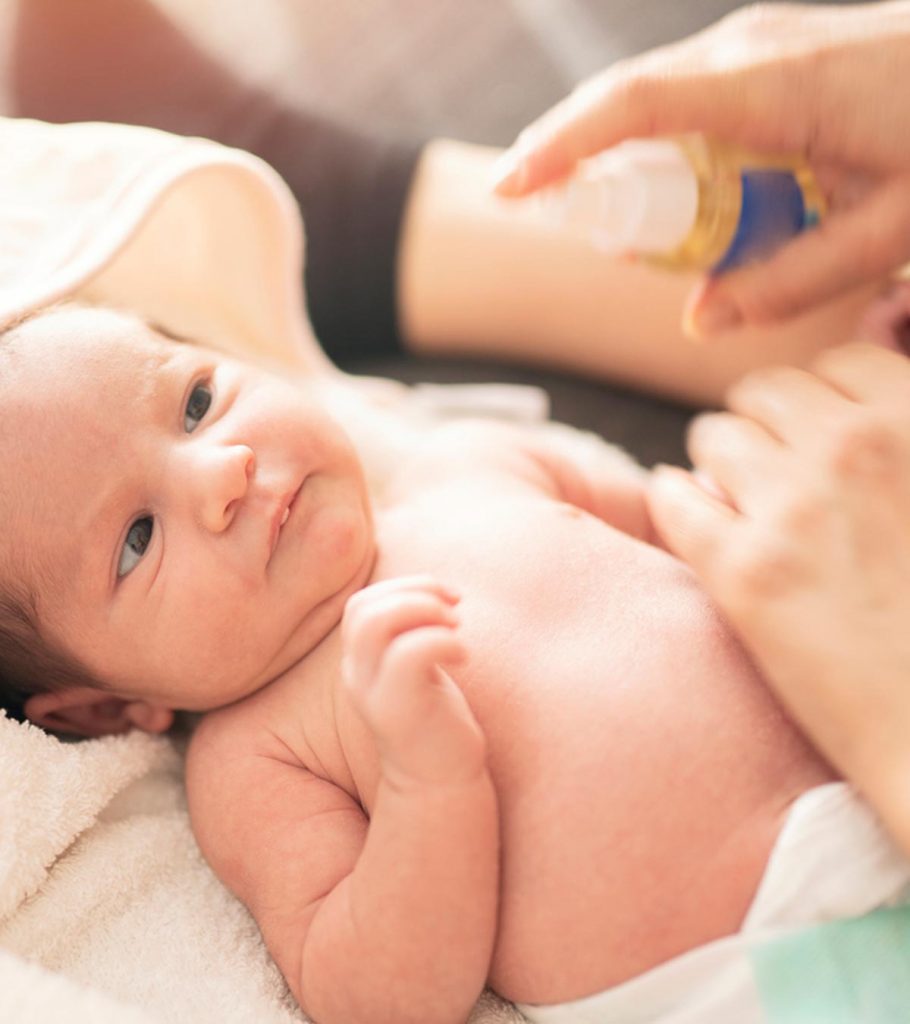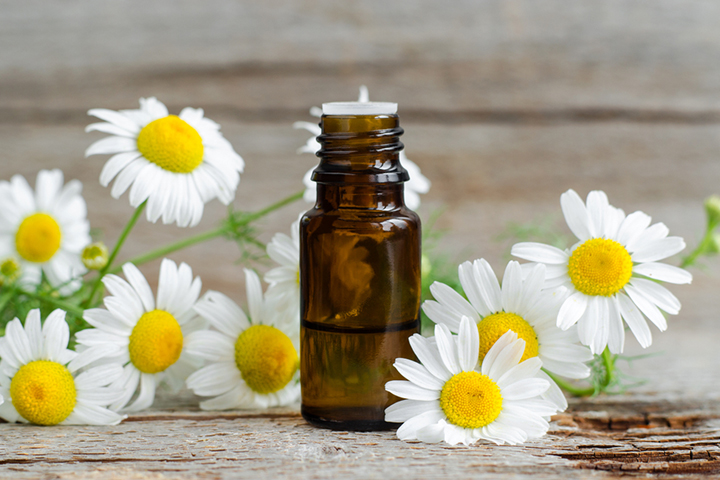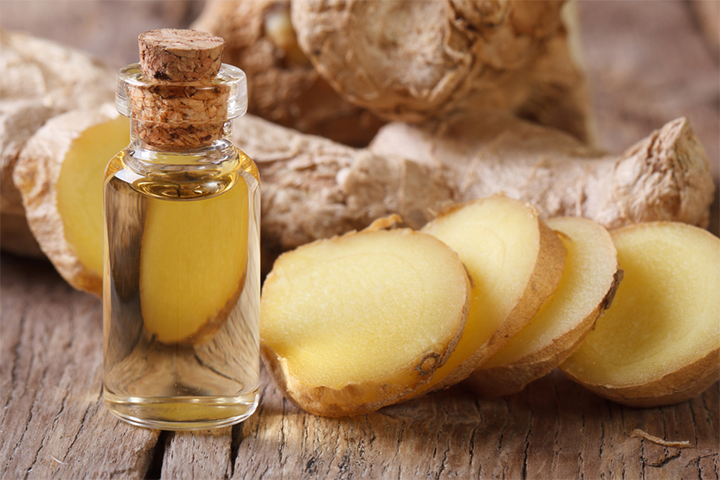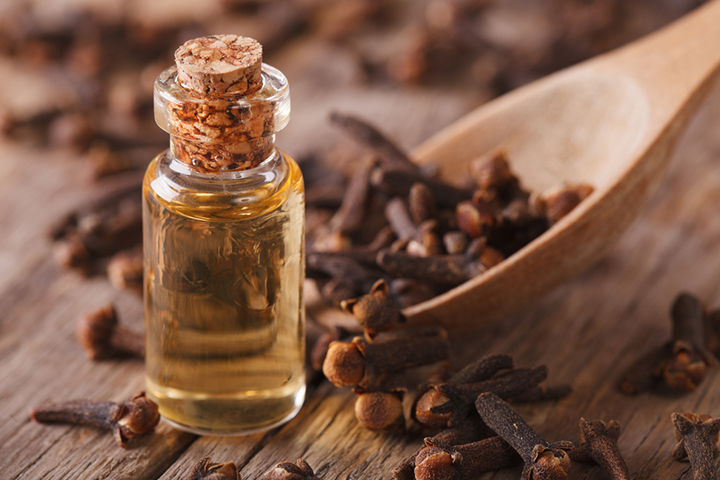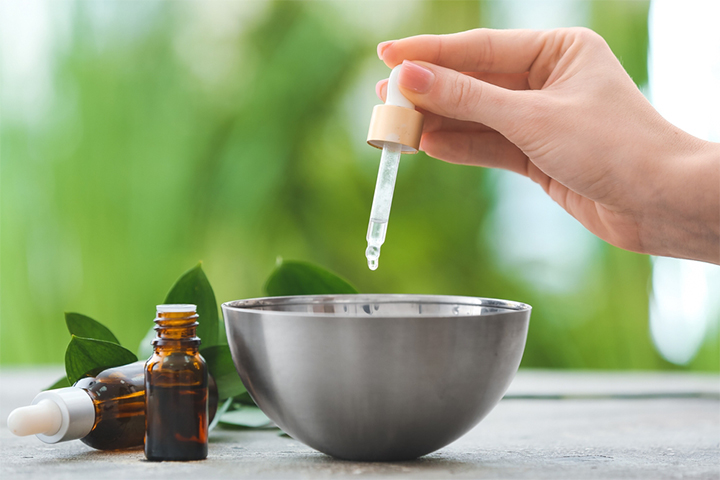While some adults use essential oils to deal with teeth and gum pain, it must be considered whether it is safe to use essential oils for teething in babies. Teething is an important milestone, and it usually starts between four and seven months. Most babies receive all 20 of their teeth by 30 months (1) (2).
Gum irritation during the teething period can disturb the baby’s sleep and feeding patterns. However, according to the American Dental Association (ADA), a gentle finger massage on the baby’s gums can help provide some relief (3).
In this post, we inform you if there is any medical evidence regarding the benefits of using essential oils to soothe teething babies and what precautions should be kept in mind.
Are Essential Oils Safe For Teething Babies?
The American Association of Naturopathic Physicians does not recommend using essential oils at all on babies younger than three months.
The safety of essential oils varies depending on its intent of use (coliciXA frequent pattern of fussiness or crying in a healthy and well-fed infant.or teething), method of application (topical or diffusion), and the baby’s age and health condition (4). Some essential oils could be safe when used for babies of a certain age group. Older babies may be able to use more types of essential oils than younger infants.
Nevertheless, the safety and suitability may differ among babies of the same age group. Therefore, it is best to consult a certified aromatherapist, essential oil practitioner, or pediatrician before trying essential oils for teething. An expert would tell you the right type and dosage of the essential oil to avoid any adverse reactions.
How Might Essential Oils Help Babies With Teething Pain?
Topical application or diffusion of essential oil may help babies with teething pain by:
- Alleviating the inflammation of the gums and subsiding their tenderness.
- Relieving the pain so that the baby feels calm and relaxed.
- Preventing or reducing infections that may occur due to gum inflammation.
You can dilute the essential oil in a base or carrier oiliXPlant-based oils dilute the highly-potent essential oils. and use it topically to massage the baby’s gums. Alternatively, you can massage the baby’s jawline with the oil. The diffusion of essential oil does not directly work on the gums but could make the baby with teething pain feel calm and relaxed.
Essential Oils To Relieve Teething Pain
You may consider using essential oil when the baby begins teething after the age of four months. Do not use essential oils for babies younger than three months since they have sensitive skin and bodies (5).
Below is a list of essential oils you may try for relieve your baby’s teething pain after consulting a pediatrician, certified aromatherapist, or essential oil practitioner.
For babies older than four months
1. Chamomile (Matricaria recutita or Chamaemelum nobile)
Research shows that the topical application of chamomile extract could relieve teething pain and irritability in babies (6). Mix a drop or two of chamomile essential oil to a base or carrier oil and rub it in a circular motion on your baby’s gums to subside teething pain. You may also dip a washcloth in chamomile tea and give it to your infant to chew (7).
2. Lavender (Lavandula angustifolia)
The fragrance of lavender’s essential oil has soothing properties, making it popular in aromatherapy. Smelling lavender oil could reduce pain in infants, and it might also relieve teething pain (8) (9). You may diffuse lavender oil in the baby’s room using an essential oil diffuser or leave cotton balls dipped in the oil near the baby’s crib.
3. Dill (Anethum graveolens)
Dill has anti-inflammatory properties that may help soothe tender gums and alleviate teething pain (10). Mix a drop or two of dill essential oil with a carrier oil and rub the oil blend on sore gums.
For babies older than six months
4. Ginger (Zingiber officinale)
Ginger is popular for its antimicrobial properties (11). A study noted that ginger’s analgesic (pain-relieving) and anti-inflammatory properties were comparable to ibuprofen (12). These properties may help relieve teething pain. You may mix a drop of ginger oil in a carrier oil and gently massage the baby’s sore gums.
5. Marjoram (Origanum majorana)
Marjoram, also known as sweet marjoram, is a common culinary herb also used in traditional medicine to relieve pain (13). You may try marjoram essential oil to relieve the baby’s teething pain. Mix a drop of it in a base oil and use it to massage the baby’s gums.
For babies older than two years
6. Copaiba (Copaifera langsdorffii)
Copaiba essential oil is popular in traditional medicine due to its anti-inflammatory and antiseptic properties (14). Research highlights that copaiba oil also possesses pain-relieving effects, which may help relieve teething pain in infants (15). Add a drop or two of the oil to carrier oil before using it for babies.
7. Clove bud (Eugenia caryophyllata)
Clove oil contains a compound called eugenol, which is considered an effective natural remedy to relieve toothache in adults and teething pain in babies (16) (17). You may dissolve a drop of clove oil in a carrier oil and massage the baby’s gum.
Always use essential oils diluted in a carrier or base oil, which can be any vegetable oil (18). You may also consider using hydrosols, which are water-based extracts of plants with a small quantity of essential oil in them (19). A hydrosol might be a suitable alternative to essential oil for some babies.
Sandy Philpott recalls how her mother used clove oil to alleviate her teething discomfort during infancy. She says, “When I was a baby, my mother kept a tiny vial of oil of cloves in the medicine cabinet to rub on my gums. I’ve smelled that stuff, and I admit that it may or may not have dulled the pain, but it certainly would have created a sensory distraction (i).”
Precautions To Take While Using Essential Oils For Babies
Remember that babies and children should never ingest essential oils. Observe the following safety tips while using essential oils for babies (18) (20) (21).
- Consult a certified herbalist or essential oil expert before using essential oils for babies.
- Buy pure essential oils from a trusted source, as adulterated essential oils increase the risk of adverse reactions.
- Look for specific information on the label, such as the plant’s Latin and common name, the plant part from which the oil was extracted (flower, leaf, bark, fruit, seed, or root), country of origin, and extraction method. It is necessary to ensure product quality.
- Follow the recommended dosage and avoid overuse to mitigate any adverse effects.
- Dilute essential oils in carrier oils as per the prescribed dilution ratio. For babies and children, the dilution ratio ranges from 0.1 to 5 percent. Consult an expert to know the precise dilution ratio for an oil.
- Choose a carrier oil that is mild on the baby’s sensitive mucous membrane. For instance, fractionated coconut oiliXA lighter, less greasy form of coconut oil obtained by removing certain fats. or virgin coconut oil is a general recommendation. Speak to an essential oil expert to know more about suitable carrier oils.
- Do a patch test for the carrier oil alone to rule out any allergies due to the base oil.
- Do a patch test of the essential oil and carrier oil mix to rule out the possibility of allergic reactions or cross-reactivity. If your baby has allergies or a family history of allergies and sensitivities, consult a pediatrician before use.
- If your baby has any medical conditions or is on medications, use essential oils after consulting the doctor to prevent possible drug interactions.
- Discontinue using the essential oil if the baby exhibits signs of sensitivity, such as visible skin irritation or uncontrolled crying. You can apply a small amount of vegetable oil or full-fat milk to soothe the affected area.
- Keep essential oils in tinted glass bottles and store them in a cool, dark place, away from sunlight, to preserve their quality.
- Diffuse essential oils in a ventilated area for no more than 20 minutes. Prolonged inhalation may irritate the baby’s airways. Avoid essential oil diffusion if the baby has asthma or has a family history of respiratory allergies.
Babies may start teething four months onwards and undergo severe discomfort and pain. They may not sleep or eat properly during this period and are usually jittery and fussy. You may try topically using essential oil for teething to manage pain sensations and calm your baby. However, all essential oils are not safe at all ages as baby skin is sensitive. Therefore, it is best to consult an expert to know the proper oil type, dosage, and correct dilution ratio to prepare a safe blend to relieve teething symptoms in babies.
Key Pointers
- Topical application of some essential oils can help reduce gum inflammation, relieve soreness and prevent secondary gum infections.
- It is not safe to use essential oils for babies of less than three months.
- Your pediatrician may prescribe some essential oils, such as chamomile, lavender, dill, ginger, and marjoram, based on your child’s age and other factors.
Understand the proper usage of essential oils for teething infants. Learn about their benefits and receive expert advice on ensuring safe usage for your precious little one.
